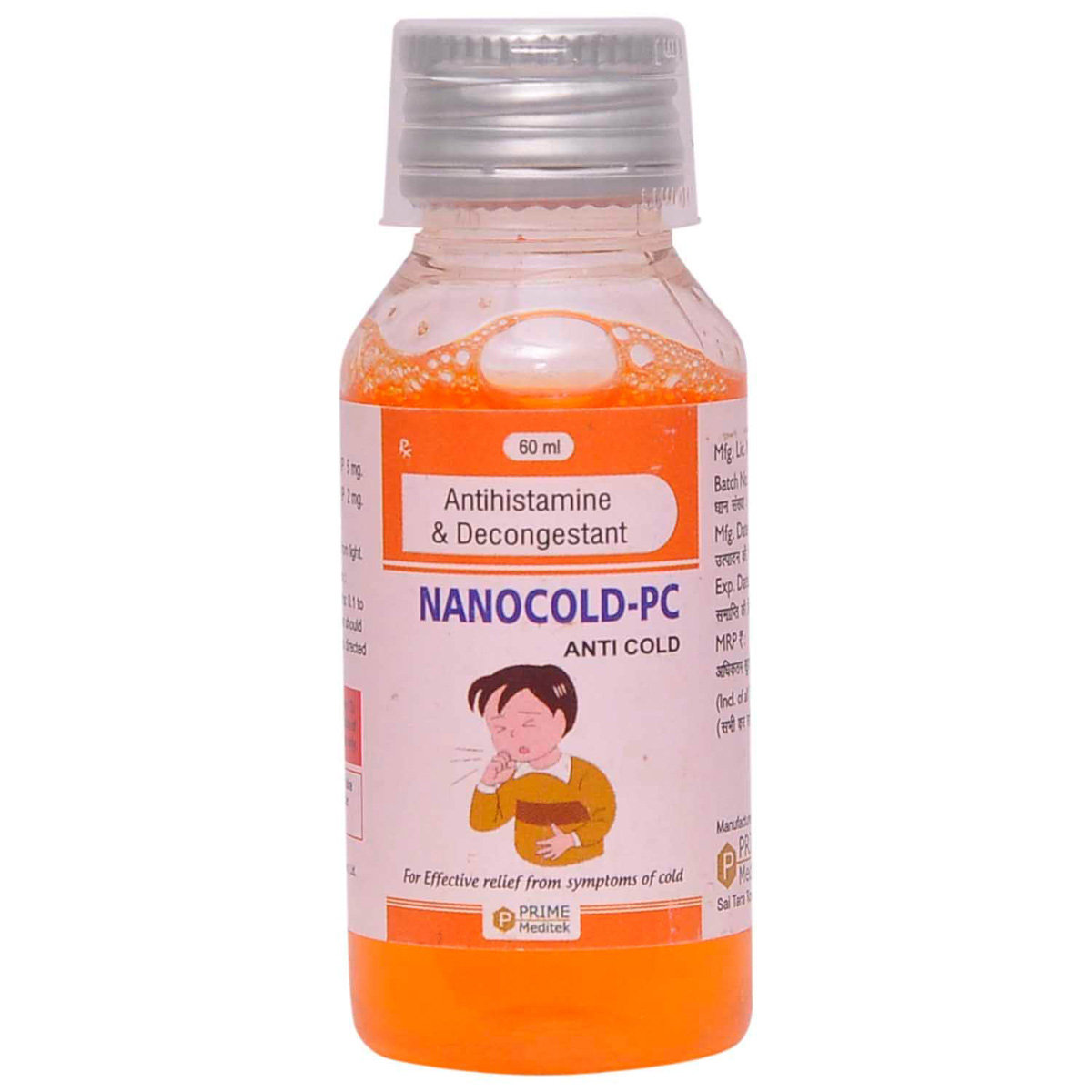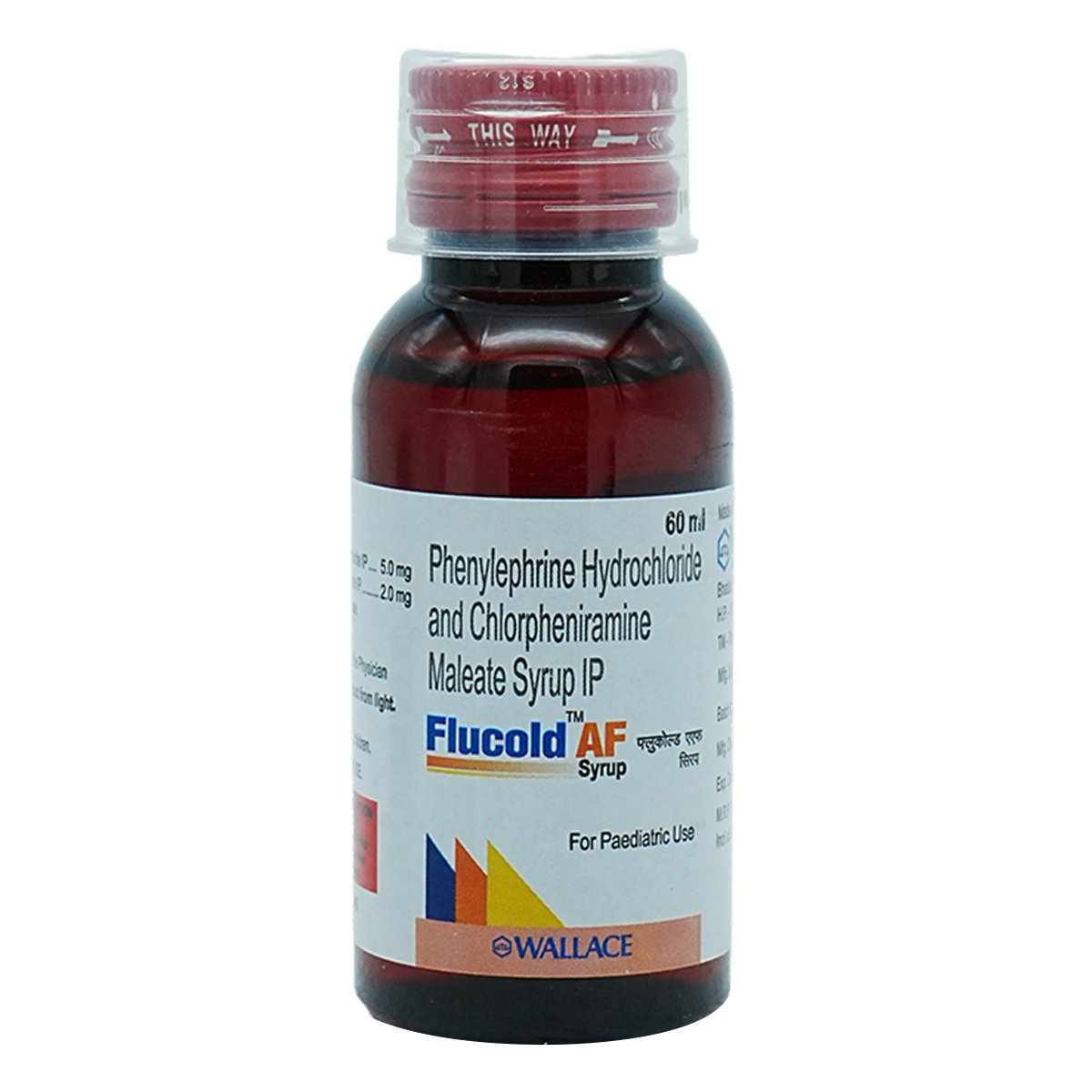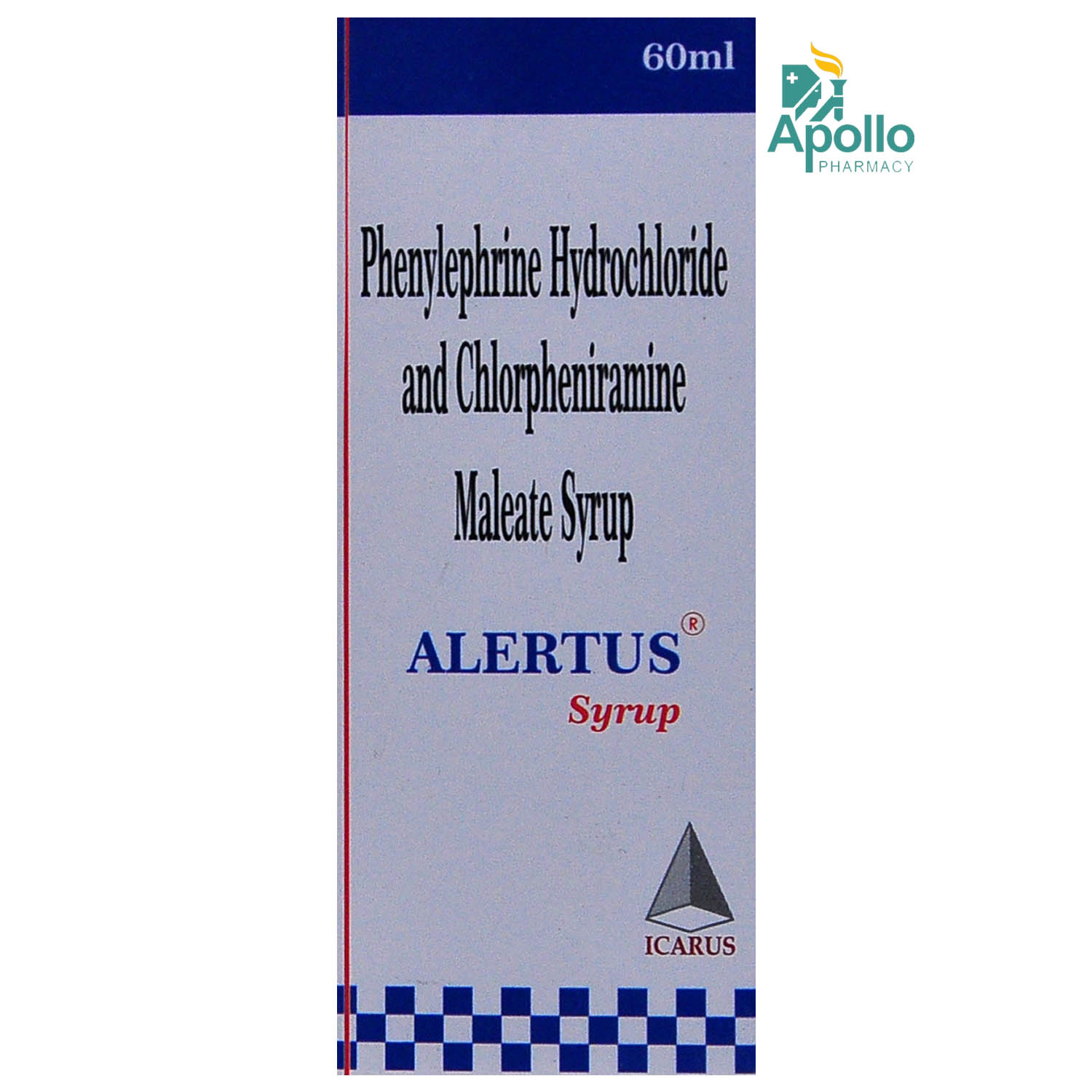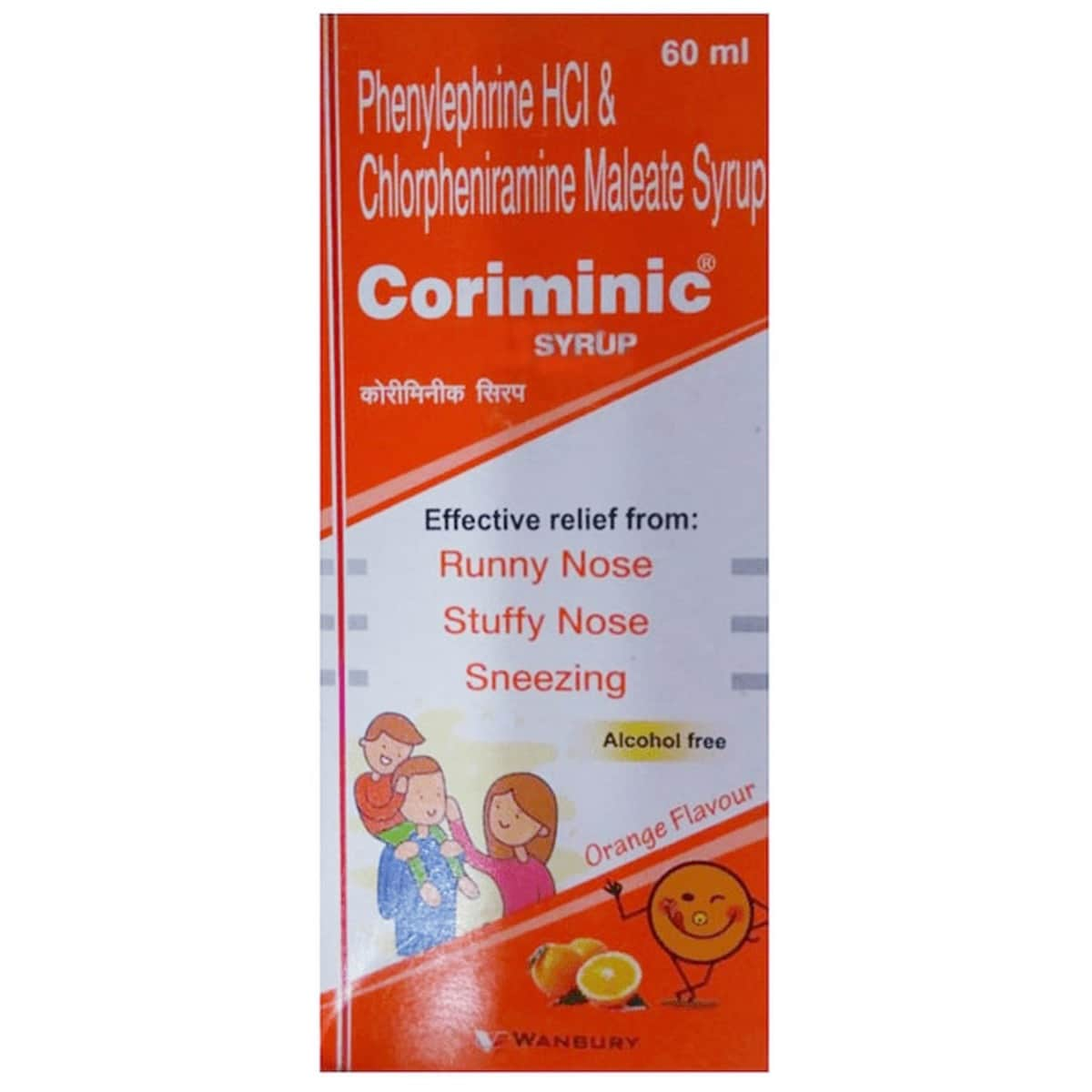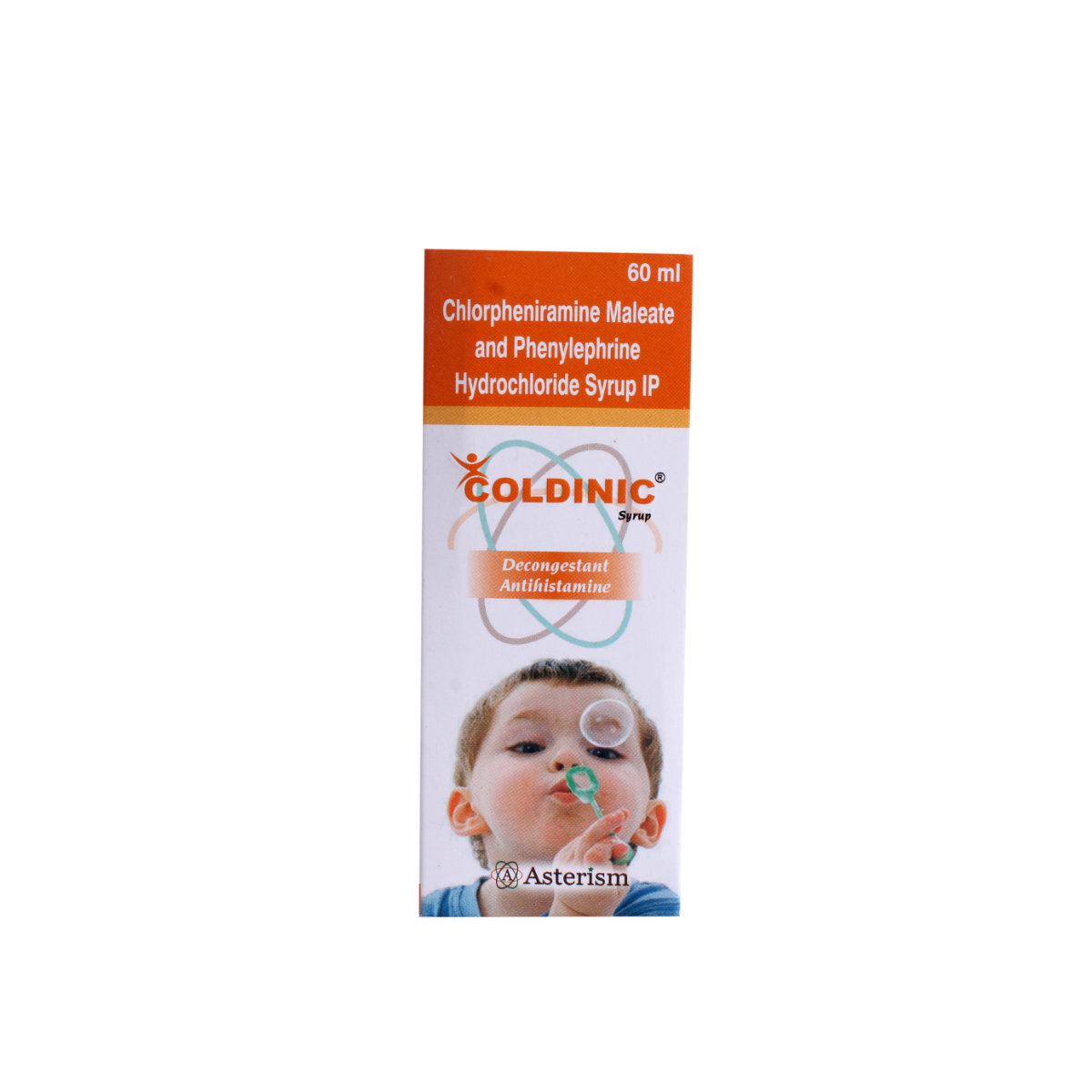- Home
- Allercet Cold Syrup
Allercet Cold Syrup Substitute
Allercet Cold Syrup Substitute
Medicine Composition:
CHLORPHENIRAMINE MALEATE-2MG+PHENYLEPHRINE-5MGAll Substitutes & Brand Comparisons
RX
Correctal Syrup 100 ml
Union Drug Company Ltd
₹74.5
(₹0.67/ 1ml)
48% CHEAPERRX
Out of StockAmex Q Syrup
₹55
(₹0.83/ 1ml)
35% CHEAPER- Apollo-Trusted
RX
Tricold Syrup 60 ml
Scott Edil Pharmacia Ltd
₹70
(₹0.88/ 1ml)
31% CHEAPER RX
Out of StockDrifen-AF Syrup
₹68
(₹1.02/ 1ml)
20% CHEAPERRX
Out of StockDicolead Syrup
₹75
(₹1.13/ 1ml)
12% CHEAPERRX
Nanocold PC Syrup 60 ml
Heamcure Pharmaceuticals Ltd
₹79.5
(₹1.19/ 1ml)
7% CHEAPERRX
Welminic Syrup 60 ml
Akumentis Healthcare Ltd
₹83
(₹1.25/ 1ml)
3% CHEAPERRX
Out of StockDkalt Syrup Orange
₹87.5
(₹1.31/ 1ml)
1% COSTLIERRX
Colfin Syrup 60 ml
Chethana Remedies India Pvt Ltd
₹88
(₹1.32/ 1ml)
2% COSTLIERRX
Flucold AF Syrup 60 ml
Wallace Pharmaceuticals Pvt Ltd
₹90
(₹1.35/ 1ml)
4% COSTLIERRX
Alertus Syrup 60 ml
Icarus Health Care Pvt Ltd
₹92.5
(₹1.36/ 1ml)
5% COSTLIERRX
Coriminic Orange Syrup 60 ml
Wanbury Ltd
₹100
(₹1.5/ 1ml)
16% COSTLIERRX
Wikoryl AF Syrup 60 ml
Alembic Pharmaceuticals Ltd
₹110.5
(₹1.66/ 1ml)
28% COSTLIERRX
Coldinic Syrup 60 ml
₹113
(₹1.7/ 1ml)
31% COSTLIERRX
Coldant-AF Syrup 60 ml
Mirth Pharmaceuticals
₹102
(₹1.7/ 1ml)
31% COSTLIER

When Should You Consider Switching from Allercet Cold Syrup?
Patients may explore substitutes in the following scenarios:
- High monthly cost of Allercet Cold Syrup
- Non-availability in local pharmacies
- Generic recommendation by a doctor
- Side effects or better tolerability with alternatives
What to Know Before Switching
Before you switch from Allercet Cold Syrup to another medicine, here are some important points to keep in mind:
Same salt, different brands:
Most substitutes contain the same active ingredient - CHLORPHENIRAMINE MALEATE-2MG+PHENYLEPHRINE-5MG, but the fillers, coating, or manufacturing quality may vary slightly.
Consult your doctor first:
Even if the salt is the same, your doctor can confirm if the substitute is right for your condition, dosage, and health history.
Watch out for allergies or reactions:
Some people may react differently to certain brands due to inactive ingredients. If you notice any side effects, inform your doctor immediately.
Price ≠ effectiveness:
A lower-priced substitute doesn't mean it's less effective. Many generic medicines work just as well as branded ones.
Check the dosage form and strength:
Always match the substitute’s strength (e.g., 5mg, 10mg) and form (tablet, capsule, syrup) with what your doctor prescribed.
Uses
Allercet Cold Syrup is used in the treatment of the Common cold and Allergies. The detailed uses of Allercet Cold Syrup are as follows:
- Cough Relief: Allercet Cold Syrup is commonly used to ease coughing, offering temporary relief for both dry and productive coughs, and helping individuals breathe more comfortably.
- Cold Symptom Management: Allercet Cold Syrup is effective in addressing common cold symptoms like throat irritation and nasal congestion, providing relief and comfort during illness.
- Allergy Symptom Relief: Allercet Cold Syrup may also alleviate symptoms of allergies, including sneezing and a runny nose, making it particularly useful for managing seasonal allergies.
Medicinal Benefits
- Allercet Cold Syrup is used to relieve symptoms of the common cold, such as a runny nose, nasal congestion, sneezing, and watery eyes.
- Chlorpheniramine maleate, an antihistamine, blocks the action of histamine, a chemical responsible for allergic symptoms, thereby reducing sneezing, itching, and watery eyes.
- Phenylephrine, a nasal decongestant, constricts blood vessels in the nasal passages, helping to reduce nasal stuffiness and congestion.
- Allercet Cold Syrup provides quick and effective relief from discomfort caused by allergies, sinusitis, or upper respiratory tract infections.
- It helps improve breathing, restore nasal airflow, and enhance overall comfort during colds or allergic episodes.
- Allercet Cold Syrup may also be used to manage allergic rhinitis and seasonal allergy symptoms.
FAQs
The substitutes of Allercet Cold Syrup contain the same active salt(s) - CHLORPHENIRAMINE MALEATE-2MG+PHENYLEPHRINE-5MG. However, they may differ in price, manufacturing quality, and inactive ingredients. Speak to your doctor to find a suitable option.
Switching to a generic substitute medicine in the place of Allercet Cold Syrup is often possible if it has the same salt, strength, and dosage form. But always check with your doctor before making any changes to your medication.
Generics versions of Allercet Cold Syrup are typically more affordable because they don’t include the original brand's research, development, and marketing costs. They contain the same active ingredient and are approved for safety and effectiveness.
Most people don’t notice any difference. However, some may react to different fillers or coatings. If you notice any unusual symptoms after switching, consult your doctor.
Make sure the new medicine has the same active salt, strength, dosage form. Always confirm the change with your doctor or pharmacist.
Substitutes of Allercet Cold Syrup meet the same safety and efficacy standards as Allercet Cold Syrup, but small differences in absorption or formulation can exist. A doctor can help you choose the right one for your needs.
Yes. Substitutes of Allercet Cold Syrup may vary in color, size, or shape due to differences in manufacturing and branding, but this does not affect how they work.
Yes, it’s generally safe to switch between multiple substitutes of Allercet Cold Syrup if they have the same salt and strength. However, always inform your doctor so they can monitor how your body responds.
Yes, many people safely use substitutes of Allercet Cold Syrup for long-term treatment. Just ensure it’s done under medical supervision.
If your symptoms stay under control or lab results remain stable, the substitute for Allercet Cold Syrup is likely working well. Regular follow-ups with your doctor are important.
Absolutely. Even with the same salt, small differences can affect how your body responds when switching from Allercet Cold Syrup to its substitute. Always consult your doctor before switching.
Allercet Cold Syrup is used to treat symptoms caused by the common cold, flu, allergies and other breathing problems like sinusitis and bronchitis.
Allercet Cold Syrup contains Chlorpheniramine maleate and Phenylephrine. Chlorpheniramine maleate blocks histamine in the body, which is known to cause allergic symptoms. Phenylephrine helps in shrinking the blood vessels in the nasal passage, thereby reducing the stuffy nose. Together, both of them effectively reduce the symptoms of a cold and allergies.
It is not recommended to take Allercet Cold Syrup and any antidepressant medication as it may lead to unpleasant side effects or drug interactions. Also, Allercet Cold Syrup should be taken at least 15 days after your last dose of antidepressants.
Take the missed dose as soon as you remember. If it is almost time for your next dose, wait until then to take Allercet Cold Syrup and skip the missed dose. Do not take extra medicine to make up for the missed dose.
Allercet Cold Syrup is known to cause drowsiness and sleepiness. Hence, you are recommended to take it at night if you are experiencing excessive drowsiness during the day and avoid driving or doing anything that requires mental alertness.
The exact time may vary depending on the individual's condition and response to the medication. Follow your doctor's instructions carefully to achieve effective results.
Allercet Cold Syrup is not an antibiotic. It is a combination medication that typically contains ingredients like chlorpheniramine, an antiallergic, and phenylephrine, a decongestant.
Allercet Cold Syrup is an antiallergic medication typically containing ingredients like chlorpheniramine and phenylephrine. It is used to relieve cold and flu symptoms, such as fever, headache, and body pain.
Allercet Cold Syrup is generally considered safe when used as prescribed by a doctor. However, like all medications, it can have side effects and potential interactions with other drugs. It's important to follow your doctor's instructions and inform them of any pre-existing and existing medical conditions or medication history to avoid adverse complications.
Allercet Cold Syrup can sometimes cause nausea and vomiting as side effects, though not everyone experiences them as individual responses towards medication may vary. These effects are typically mild and temporary, resolving as the body adjusts to the medication. However, if these symptoms persist or worsen, it’s essential to consult a doctor promptly to ensure the safety and well-being of the individual.
No, you should not take a higher dose of Allercet Cold Syrup than the recommended amount, as it can increase the risk of side effects and adverse health complications. Always follow the dosage your doctor prescribes or as indicated on the package. If you have any concerns about dosing, please discuss them with your doctor.
Yes, there are some contraindications related to the use of Allercet Cold Syrup, such as avoiding using Allercet Cold Syrup if you have an allergy to its ingredients, high blood pressure, severe heart disorders, overactive thyroid, kidney or liver problems, glaucoma, and urinary retention. Always consult your doctor before use.
Store Allercet Cold Syrup in a cool, dry place, and out of sunlight. Keep it out of the reach of children.
The common side effects of Allercet Cold Syrup that may occur in some individuals are drowsiness, dizziness, headache, dry mouth/nose/throat, upset stomach, constipation, or trouble sleeping. Most of these side effects of Allercet Cold Syrup do not require medical attention and gradually resolve over time. However, if the side effects persist, contact your doctor.
If you forget a dose of Allercet Cold Syrup, take it immediately when you remember. However, if your next dose is near, skip the missed dose and continue with your regular schedule. Never double-dose to make up for a missed dose, as this may increase side effects.
If your symptoms persist or fail to improve, consult your doctor. As the treatment process can be gradual, it may take some time to heal your condition fully. However, if you don't see improvement, your doctor may need to reassess your condition, adjust the dosage, or consider alternative treatments. Don't hesitate to consult your doctor with concerns or questions about your progress.
Don't stop taking your medication just because you're feeling better! This is a crucial moment in your recovery. Stopping too soon can lead to incomplete recovery and the return of symptoms. Instead, report your progress to your doctor and follow their advice. They will guide you on how to taper off the medication, if necessary, safely.
Buy best Respiratory System products by
Cipla Ltd
Glenmark Pharmaceuticals Ltd
Lupin Ltd
Alkem Laboratories Ltd
Sun Pharmaceutical Industries Ltd
Mankind Pharma Pvt Ltd
Macleods Pharmaceuticals Ltd
Zydus Healthcare Ltd
Leeford Healthcare Ltd
Dr Reddy's Laboratories Ltd
Zydus Cadila
Pristine Pearl Pharma Pvt Ltd
Abbott India Ltd
Intas Pharmaceuticals Ltd
Alembic Pharmaceuticals Ltd
German Remedies Ltd
Aristo Pharmaceuticals Pvt Ltd
Centaur Pharmaceuticals Pvt Ltd
Zuventus Healthcare Ltd
Wockhardt Ltd
Micro Labs Ltd
Koye Pharmaceuticals Pvt Ltd
Ipca Laboratories Ltd
GlaxoSmithKline Pharmaceuticals Ltd
Med Manor Organics Pvt Ltd
Seagull Pharmaceutical Pvt Ltd
Torque Pharmaceuticals Pvt Ltd
Blue Cross Laboratories Pvt Ltd
Medishri Healthcare Pvt Ltd
Yash Pharma Laboratories Pvt Ltd
Capital Pharma
Divine Savior Pvt Ltd
East West Pharma India Pvt Ltd
Fourrts India Laboratories Pvt Ltd
Indiabulls Pharmaceuticals Pvt Ltd
Tablets India Ltd
Uniza Healthcare Llp
Adonis Laboratories Pvt Ltd
FDC Ltd
Shreya Life Sciences Pvt Ltd
Corona Remedies Pvt Ltd
Indoco Remedies Ltd
J B Chemicals & Pharmaceuticals Ltd
Unipark Biotech Pvt Ltd
Vasu Organics Pvt Ltd
Intra Life Pvt Ltd
Wings Pharmacuticals Pvt Ltd
Best Biotech
Biological E Ltd
Skn Organics Pvt Ltd
Wanbury Ltd
Apex Laboratories Pvt Ltd
Entod Pharmaceuticals Ltd
Eysys Pharmaceutical Pvt Ltd
Gene Lifecare
Healthgate Pvt Ltd
Icarus Health Care Pvt Ltd
Innoglide Pharmaceuticals Pvt Ltd
Navil Laboratories Pvt Ltd
Stedman Pharmaceuticals Pvt Ltd
Zee Laboratories Ltd
Comed Chemicals Ltd
Lincoln Pharmaceuticals Ltd
Megma Healthcare Pvt Ltd
Precept Pharma
Stryker Pharma Pvt Ltd
Torrent Pharmaceuticals Ltd
Bacans Biotech Pvt Ltd
Dolvis Bio Pharma Pvt Ltd
Elder Pharmaceuticals Ltd
Emcee Pharmaceuticals (P) Ltd
Geno Pharmaceuticals Pvt Ltd
La Renon Healthcare Pvt Ltd
Pfizer Ltd
Prevego Healthcare & Research Pvt Ltd
Sanatra Healthcare Ltd
Timon Pharmaceuticals Pvt Ltd
Balin Healthcare Pvt Ltd
Brinton Pharmaceuticals Ltd
Embiotic Laboratories (P) Ltd
Heal (India) Laboratories Pvt Ltd
Incite Pharmaceuticals
Kepler Healthcare Pvt Ltd
Modi Mundipharma Pvt Ltd
RPG Life Sciences Ltd
Wellok Pharma
Yuventis Pharmaceuticals
Aar Ess Remedies Pvt Ltd
Aglowmed Pharmaceuticals Ltd
Cadila Pharmaceuticals Ltd
Chemo Healthcare Pvt Ltd
Flaring Formulations Pvt Ltd
Foregen Healthcare Ltd
Hibiscus Pharmaceuticals Pvt Ltd
Honest Care Pharmaceuticals
JP Life Science Pvt Ltd
Knoll Pharmaceuticals Ltd
Laborate Pharmaceuticals India Ltd
Rnd Laboratories Pvt Ltd
Silver Cross Medisciences Pvt Ltd



